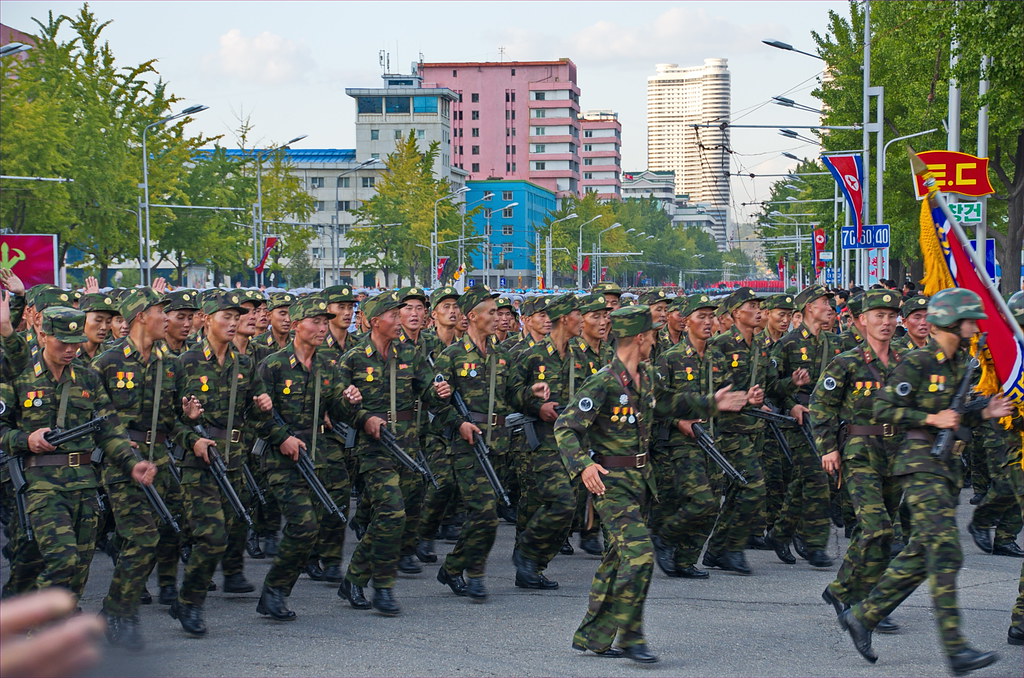OHCHR report calls for justice, reparations for victims of enforced disappearance in North Korea
“The anguish, sorrow and reprisals that families – across multiple generations – have had to endure are heart-breaking,” said UN Human Rights Chief Volker Türk.

A report published today by the UN Human Rights Office vividly details the ongoing suffering of victims of enforced disappearance and abduction by the Democratic People’s Republic of Korea. The report calls for renewed efforts for truth, justice, reparations and guarantees of non-recurrence.
“The anguish, sorrow and reprisals that families – across multiple generations – have had to endure are heart-breaking,” said UN Human Rights Chief Volker Türk. “The testimonies from this report demonstrate that entire generations of families have lived with the grief of not knowing the fate of spouses, parents, children and siblings.”
The report is based on interviews with 38 male and 42 female victims of abduction and enforced disappearance, including relatives of forcibly disappeared people. The testimonies lay bare the severe and sustained psychological harm and emotional suffering, as well as the economic impact, such violations have had on their lives. The effect was particularly severe where a family’s main income earner was targeted, leaving remaining family members at acute risk of poverty and discrimination.
One woman whose husband was abducted in June 1972 while he was out fishing said: “After my husband’s abduction, we did not have enough money to feed ourselves.”
The report, entitled ‘These wounds do not heal’, details enforced disappearances and abductions dating back to 1950, including arbitrary detentions in the Democratic People’s Republic of Korea, in some cases following forcible repatriations from neighbouring countries; abductions of nationals of the Republic of Korea during and after the Korean War; non-repatriation of prisoners of war from the Korean War; and abductions or enforced disappearances of nationals from Japan and other States.
The brother of a woman who was abducted from Japan in 1978 said: “I really want to know her whereabouts and whether she is healthy or sick. I really want to see her photos. I really wish to have her photo.”
Many victims of enforced disappearance within the Democratic People’s Republic of Korea were sent, often for life, to political prison camps known as kwanliso or other detention sites where they were subjected to incommunicado detention and torture. Some were reportedly summarily executed with no information provided to their relatives, the report said.
“I heard [my wife and son] were sent separately to different political prison camps. My son, who was a minor, should have finished his prison term of four years, but I still have no idea about his whereabouts. That suggests either [he] is still in a political prison camp or died in detention,” said a victim interviewed for the report.
“These deeply tragic stories of lives ripped apart by State-sponsored abductions and enforced disappearances demand action,” said UN Human Rights Chief Volker Türk.
"Enforced disappearance is a profound violation of many rights at once, and responsibility lies with the State. I call on the DPRK to acknowledge these violations and take steps to resolve the cases, and on all States to support victims of enforced disappearance in their quest for justice.”
The High Commissioner expressed his determination to engage with the Government of the Democratic People’s Republic of Korea to resolve well-documented human rights issues.
“Now is the time for the Democratic People's Republic of Korea to move away from isolation and work with the UN to find solutions to human rights issues - including the long-standing issue of enforced disappearance and abduction - and fulfil its obligations under international human rights law,” he said.
The UN Human Rights Office consulted victims on what justice and accountability for enforced disappearance would mean for them. Among their key demands was their desire to know the full truth about what had happened to their loved ones.
“The most difficult part is that I have heard no news about my husband. I would like to hear words from him. It would have been so nice if I at least knew whether he is starving or having proper meals; just the slightest news. Just hearing some news would be comforting, but I’ve heard nothing at all,” the report quotes a victim as saying.
In 2014, the UN Commission of Inquiry on the situation of human rights in the DPRK concluded that the systematic and widespread nature of the abductions and enforced disappearances constituted crimes against humanity.
The report calls on the international community to continue to support efforts to investigate international crimes committed in the Democratic People’s Republic of Korea. It says those responsible should be brought to justice in domestic or international courts that meet international standards for a fair trial, including based on accepted principles of universal or extraterritorial jurisdiction. It also calls on the relevant States to support efforts to ensure effective access to justice for the victims and to introduce comprehensive reparation programmes designed in consultation with victims to meet their needs, including compensation, memorialization, restoration of dignity, and provision of adequate medical, and psychosocial support.
“Victims have the right to truth and to justice, reparations and guarantees of non-recurrence. Even in decades-old cases we should leave no stone unturned in seeking accountability, transparency and redress.” Turk added.
- READ MORE ON:
- North Korea
- Volker Türk










